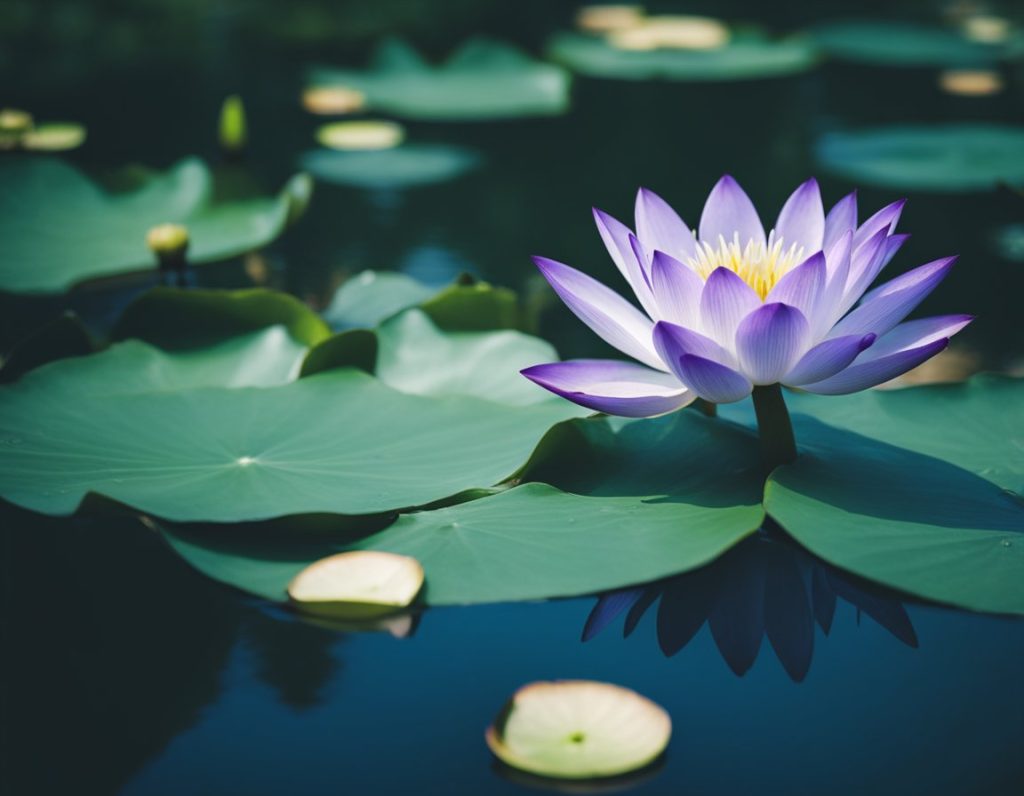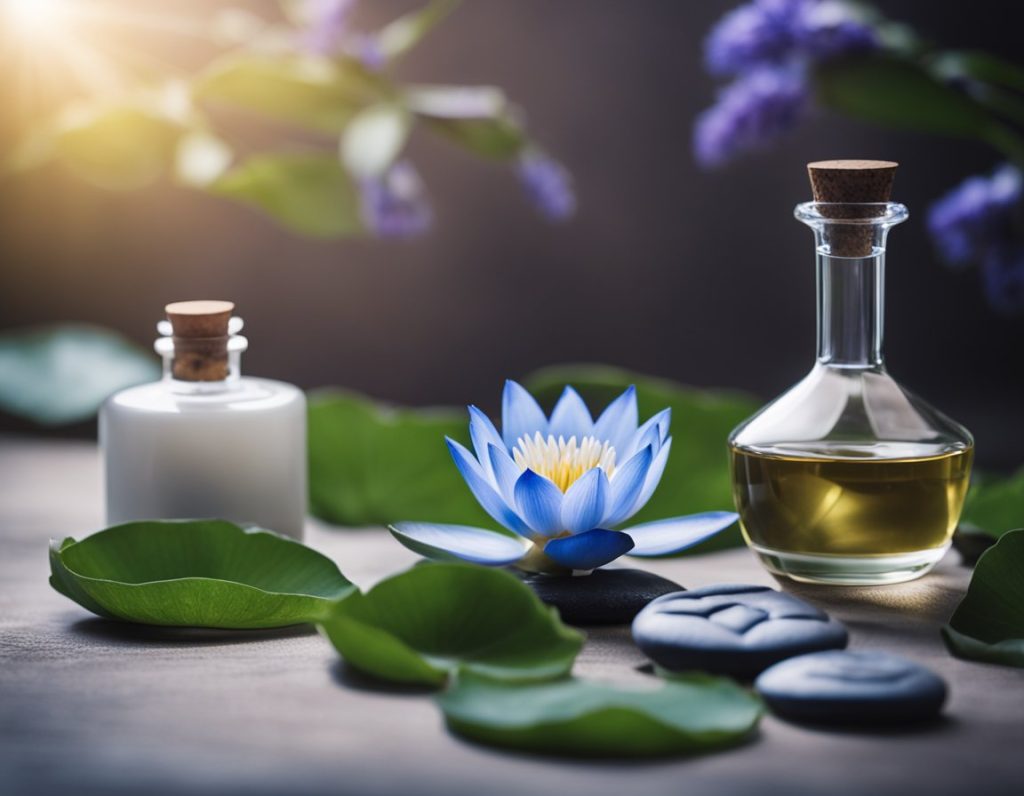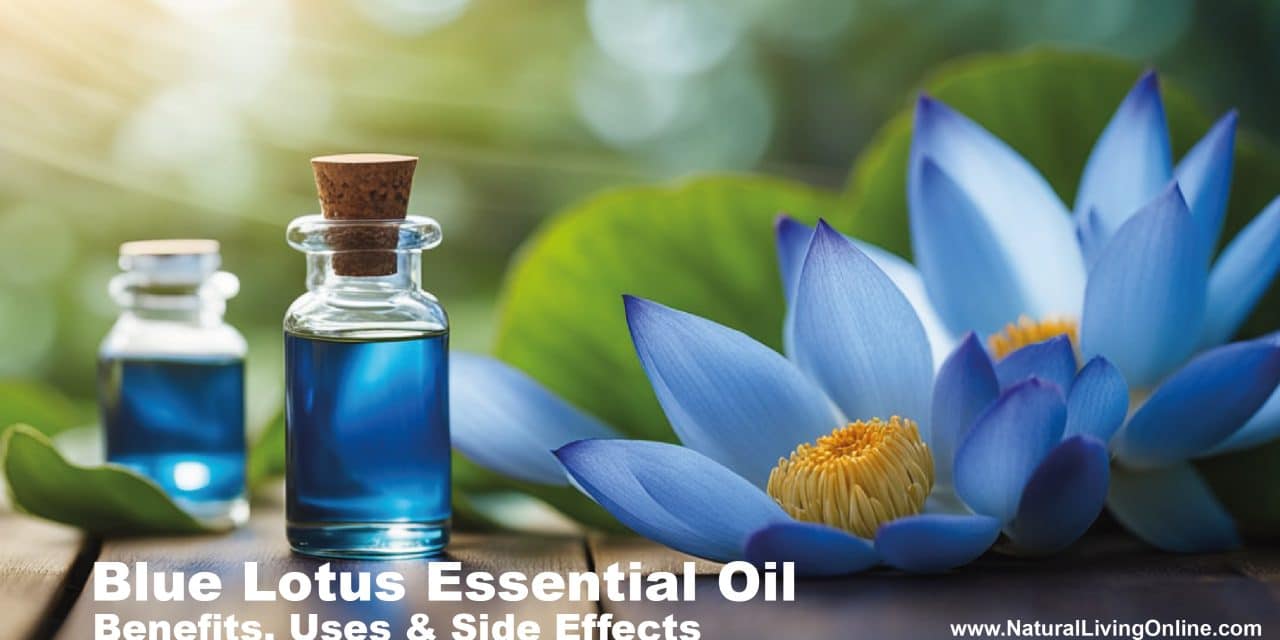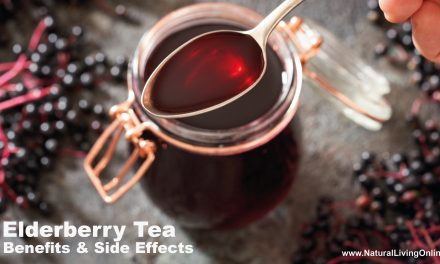Blue Lotus essential oil, with its alluring fragrance and significant history, has been enjoyed for its therapeutic properties since ancient times. Extracted from the flowers of Nymphaea caerulea, commonly known as the Egyptian lotus, this oil is known for its potential to improve mood, alleviate stress, and offer a sense of relaxation. The use of Blue Lotus spans various applications, from aromatherapy practices and skincare regimens to spiritual rituals.
This essential oil is often utilized for its soothing properties that may assist in promoting better sleep and reducing anxiety. It also harbors various compounds that could aid in pain relief and inflammation reduction. Moreover, the cosmetic industry values Blue Lotus for its skin-enhancing benefits. However, despite its potential benefits, users must be aware of the proper usage guidelines and potential side effects of Blue Lotus essential oil to ensure safe practice.

Key Takeaways
- Blue Lotus essential oil is renowned for its ability to enhance mood and promote relaxation.
- It offers therapeutic benefits, including anti-inflammatory and analgesic effects.
- Safe use guidelines and awareness of side effects are essential for responsible use.
Origins and Characteristics
The blue lotus, scientifically known as Nymphaea caerulea, originates from the waterways of ancient Egypt. Often confused with the lotus, it is actually a water lily and is sometimes referred to as the Egyptian lotus or sacred blue lily. Its blossoms are a captivating shade of blue and carried a significant presence in ancient Egyptian culture.
Historically, the blue lotus held profound sacred relevance in the religious and everyday life of Egyptians. It graced many ancient Egyptian frescoes and was incorporated into various religious ceremonies. The Egyptians considered it a symbol of the universe, and it also was a motif of rebirth and regeneration, thought to give life and strength to the dead in the afterlife.
In terms of characteristics, the blue lotus is known for its enchanting fragrance and its flowers that float on the water’s surface. They open their petals in the morning to catch the daylight and close after dusk. As an integral component of traditional medicine, the lily was used to create various preparations to treat ailments and promote general health and well-being.
Throughout history, its influence has transcended beyond Egypt, with mentions and uses spreading to other cultures over time. However, the core of its significance remains rooted in the mystical allure it held over the ancient Egyptians, who celebrated and utilized the blue lotus not only for its beauty but for its perceived enhancement of body and mind.
Essential oil profile
Botanical Name: Nymphaea caerulea
Common Names: Blue Lotus, Sacred Blue Lily, Blue Water Lily
Plant Family: Nymphaeaceae
Countries of Origin: Native to Egypt and other parts of East Africa, but also found in parts of Asia and Australia.
Extraction Method: Blue Lotus essential oil is typically extracted through solvent extraction or steam distillation of the flowers.
Parts Used: Flowers, sometimes also the leaves and petals.
Essential Oil Smell: Blue Lotus essential oil has a delicate, floral aroma with subtle sweet and earthy notes.
Essential Oil Color: Pale yellow to light green.
Viscosity: Thin
Perfumery Note: Middle Note
Strength of Aroma: Medium
Blends Well With
- Floral oils such as rose and jasmine
- Citrus oils like bergamot and neroli
- Spicy oils such as ginger and cardamom
- Woody oils like sandalwood and cedarwood
Therapeutic Properties
- Relaxant
- Aphrodisiac
- Sedative
- Analgesic
- Antioxidant
Uses
- Aromatherapy: Blue Lotus oil is used in aromatherapy to induce relaxation, reduce stress and anxiety, and promote a sense of calmness.
- Perfumery: Due to its delicate floral scent, Blue Lotus oil is used in perfumes and colognes as a natural fragrance.
- Spiritual Practices: Blue Lotus has been traditionally used in various spiritual and religious practices for its purported ability to induce altered states of consciousness and enhance meditation.
Contraindications
- Blue Lotus essential oil should be used with caution by pregnant or breastfeeding women.
- Individuals with a history of allergies or sensitivities should perform a patch test before using it topically.
Side Effects
- Blue Lotus oil is generally considered safe when used in moderation. However, excessive use may cause dizziness, nausea, or headaches in some individuals.
- As with any essential oil, it’s important to dilute Blue Lotus oil properly before applying it to the skin to avoid irritation or sensitization.
Types
- Blue Lotus essential oil is primarily derived from Nymphaea caerulea, but there are other species of Blue Lotus that may have similar properties.
Chemical Constituents with Percentages
- The chemical composition of Blue Lotus essential oil can vary, but it typically contains a variety of compounds including:
- Nuciferine
- Aporphine
- Flavonoids
- Alkaloids
- Terpenoids
- Phenolic compounds
The percentages of these constituents may vary depending on factors such as extraction method and geographical origin.
Therapeutic Properties and Health Benefits
As a herbalist, the first time I experienced the essence of blue lotus essential oil, it was as if I had uncovered an ancient secret, steeped in both mystique and therapeutic grace. I remember the delicate vial, cool to the touch, releasing an aroma that was at once floral and subtly intoxicating, a scent that seemed to bridge the gap between the earthly and the divine.
Blue lotus essential oil is recognized for its various therapeutic benefits. It encompasses antioxidant properties, thanks to compounds like flavonoids, which contribute to its ability to protect against cellular damage. As an anti-inflammatory, it helps reduce inflammation in the body, which can alleviate various conditions.
When incorporated into aromatherapy, blue lotus oil is credited with calming effects that support relaxation and stress relief. Its sedative qualities are said to be effective for those dealing with anxiety and insomnia, promoting improved sleep patterns when used as a sleep aid.
- Health Benefits:
- Offers antioxidant properties.
- Provides anti-inflammatory effects.
- Aromatherapy & Calming Effects:
- Enhances relaxation.
- Aids in stress relief and reduction of anxiety.
- Serves as a sedative to assist with improving sleep.
Blue lotus essential oil’s diverse uses in health and well-being are anchored in its scientifically observed effects. It is important, however, to approach its use with an understanding of the individual’s reactions to its properties.
Skincare and Aesthetic Uses
Blue lotus oil is celebrated for its versatile applications in skincare. When mixed with a carrier oil such as jojoba oil, almond oil, or coconut oil, it can serve effectively as a massage oil. Due to its moisturizing properties, the oil works to hydrate the skin, leaving it soft and supple.
For those incorporating this oil into their skincare routine, it is crucial to remember to apply it through topical application. It can nourish the skin, aiding in the reduction of the appearance of wrinkles and fine lines due to its potential anti-inflammatory properties.
Here is a brief overview of its uses:
- Skin Moisturizer: Combine with a carrier oil and use as a daily moisturizer to combat dry skin.
- Massage Oil: Apply as a massage oil to enjoy its calming effect and soothe the skin.
- Anti-inflammatory: The oil may offer anti-inflammatory effects that help in managing skin irritations.
Those interested in natural skincare remedies often turn to essential oils like blue lotus for their therapeutic benefits. While embracing the use of blue lotus essential oil, it’s important to do so with a well-informed and careful approach, recognizing its value in a comprehensive skincare routine.

Cultural and Spiritual Significance
The Blue Lotus Flower, an enchanting water lily, holds profound cultural and spiritual significance across various civilizations, notably within Ancient Egypt. Often depicted in Egyptian art, the Blue Lotus is believed to symbolize creation and rebirth. It is said to have been used in religious ceremonies for its mildly psychoactive properties, which were thought to facilitate divine connections.
In Ancient Egyptian culture, the Blue Lotus was considered sacred. Pharaohs and priests commonly used it during rituals, associating the plant with the spiritual realm. This blue water lily was entwined with the idea of life and afterlife, making it a prominent feature in their burial rites.
Beyond Egypt, the Blue Lotus spread to other regions, including Asia, where it also garnered reverence. Here, it holds similar associations with the spiritual and meditation practices. Often seen as an aid to enlightenment, the flower contributes to the spiritual aspect of yoga and meditation practices.
Still venerated in modern alternative practices, the Blue Lotus Flower’s essence is extracted as an essential oil, which is then utilized for its calming properties. Individuals who incorporate Blue Lotus Essential Oil into their meditative practices report enhanced states of tranquility.
Although contemporary usage is less ritualistic, the enduring legacy of the Blue Lotus continues to imbue it with a historical allure that is both spiritual and therapeutic.
Usage Guidelines and Safety Information
Blue Lotus Essential Oil, originating from Egypt, is renowned for its captivating scent and potential therapeutic benefits. However, safety and caution must be exercised to prevent adverse effects. Here are some guidelines and considerations regarding its usage:
Safety Precautions
- Patch Test: Individuals should conduct a patch test to rule out any allergic reactions before using the oil topically.
- Quality: Only high-quality, pure blue lotus essential oil should be used to minimize risks.
- Pregnancy and Nursing: Those who are pregnant or nursing should avoid using the oil, as its effects are not well studied in these conditions.
Usage Guidelines
- Ingestion: Ingesting essential oils is not recommended due to safety concerns. Always consult a healthcare provider before considering such usage.
- Topical Application: When applying blue lotus oil to the skin, dilute it with a carrier oil to prevent irritation.
- Diffusion: Using a diffuser for inhalation is generally considered safe, yet should be performed in well-ventilated areas, particularly around children, pets, or individuals with respiratory issues.
Potential Side Effects
- Allergic Reactions: Signs of an allergic reaction may include redness, itching, or swelling.
- Interactions with Medications: It may interact with certain medications, so consult a healthcare provider before use.
Overall, blue lotus essential oil must be used with caution and awareness of its potential side effects to ensure a safe experience.
Frequently Asked Questions
What are the potential health benefits of using blue lotus essential oil?
Blue lotus essential oil is reputed for its capacity to improve mood and may also provide stress relief. Some sources suggest it may aid as a sleep enhancer and act as a natural skin moisturizer.
How can blue lotus essential oil be incorporated into wellness practices?
Essential oils like blue lotus can be utilized through aromatherapy, added to bathwater, or massaged onto the skin when diluted with a carrier oil. It may also be employed in meditation practices to enhance focus and relaxation.
Are there any known side effects associated with the use of blue lotus essential oil?
While blue lotus essential oil is typically safe for most users, people with sensitivities can experience reactions. It is always recommended to perform a patch test prior to widespread use, and consult with a healthcare provider if there are any concerns.
What spiritual or emotional benefits does blue lotus essential oil offer?
The aroma of blue lotus is said to create a sense of euphoria and peace, which could enrich spiritual practices like meditation and yoga. Its scent is associated with heightened spiritual awareness and emotional release.
How does the quality of blue lotus essential oil impact its efficacy and safety?
High-quality, pure blue lotus essential oil is more likely to provide the therapeutic benefits it is known for. Oils that are diluted or adulterated may not only be less effective but could potentially pose safety risks if contaminants are present.
What legal considerations should be kept in mind when purchasing blue lotus products?
Verify that blue lotus products are compliant with local regulations, as the legal status of blue lotus may vary. Ensure you source from reputable vendors to guarantee compliance and authenticity.
References:
Chemical Composition, Market Survey, and Safety Assessment of Blue Lotus
Phytochemical Profile and Biological Activity of Nelumbo nucifera
Toxicity From Blue Lotus (Nymphaea caerulea) After Ingestion or Inhalation: A Case Series
This website does not provide medical advice.
All information provided on this website, and on associated social media networks, including but not limited to texts, images, and numbers are for general information purpose only. It is not intended as medical advice and it does not include all possible precautions, side effects, or interactions that may occur. Neither NaturalLivingOnline.com nor its author/founder take responsibility for how you use this information. Statements contained on NaturalLivingOnline.com have not been evaluated by the FDA. You should conduct thorough research via multiple sources and consult your physician or qualified doctor before using any essential oil or herbal remedy. Information on NaturalLivingOnline.com must not be relied upon for medical, legal, financial or other decisions.










